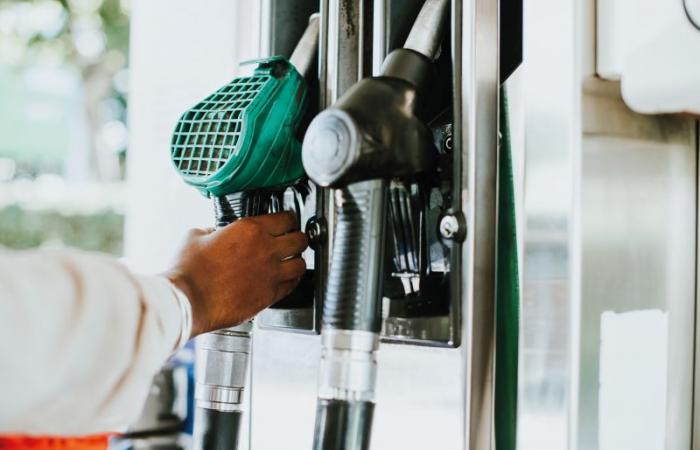
JavaScript is disabled! Why you want to do so? Please enable JavaScript in your web browser!
These are the most important announcements made by Leila BenaliMinister of Energy Transition, during a meeting of the temporary thematic group (House of Representatives) responsible for the energy transition, held on September 30.
In 2023, consumption down 2% compared to 2022
National consumption of petroleum products amounts, according to the minister’s presentation consulted by Médias24, to 11.7 million tonnes in 2023down 2% compared to 2022.
It is driven by the consumption of gasoilwhich alone represents 52% of total national consumption in 2023. That butane gas comes in second position, with 24% of national consumption.
In third position, we find the fuel oil(8%), followed by kerosene (7%), from l’essence (6%) and you propane (2%).
Distribution of PPL: 16 new accredited companies, prior agreement for 8 others
This meeting was also an opportunity for Leila Benali to review the main issues in the hydrocarbon sector, as well as the measures put in place to remedy them.
The first relates to the granting of accreditations for the distribution of liquid petroleum productsthe conditions of which were judged by the Competition Council as being relatively complicated.
To overcome this problem, the Ministry of Energy Transition has simplified these conditions. This made it possible to accredit, at the end of September 2024, 16 new companiesdont 78% of service stations were created in rural areas. The number of PPL distribution companies has thus increased from 19 to 35 distributors.
According to our information, among the 16 newly accredited companies are the company Appollo, ainsi qu’Alamia Oil, Petrostar, et Samir.
The ministry also gave its prior approval for the accreditation of eight other companies for the distribution activity of liquid petroleum products.
Thus, since the beginning of the mandate of the current government, the creation of 590 stations of fuel sales, with an investment of 1.77 billion of DHhaving made it possible to create 2,950 jobs.
Only three petroleum products exceed the regulatory storage capacity of 60 days
Leila Benali also mentioned the storage capacity of petroleum products which has not yet reached the regulatory 60 days for all of these products.
The current storage capacity amounts to 3 million m3, distributed as follows:
– 2.2 million m3 for liquid petroleum products, including 90% linked to ports;
– 799.000 m3 for liquefied petroleum gases, including 91% linked to ports.
In detail, this capacity is distributed as follows between the different petroleum products:
– 53% for diesel, or 1.6 Mm3;
– 25% for butane gas, or 750,000 m3;
– 9% for gasoline, or 288,000 m3;
– 6% for fuel oil, or 196,000 m3;
– 5% for kerosene, or 138,000 m3;
– 2% for propane gas, or 49,000 m3.
In terms of storage capacity in days of consumption, only gasoline (109 days), diesel (81 days) and fuel oil (74 days) exceed the regulatory level of 60 days of consumption. That of kerosene amounts to 48 daysagainst 55 days for butane gas, and 33 days for propane gas.
By the end of 2024, an additional storage capacity of nearly 20,000 m3
Thus, to improve the national storage capacity of these products, among the measures undertaken by the Ministry of Energy Transition is supporting the completion of projects planned by individuals for the creation of additional capacities.
Since the start of the current government’s mandate, new storage capacities reaching 11.1 million m3 are exploitedhaving required an investment of nearly 2.8 billion DH (MMDH). This made it possible to increase 20 days of national consumption the storage capacity of diesel, compared to 28 days for gasoline, and 16 days for butane gas.
From here fin 2024the government plans to increase current storage capacities by almost 20.000 m3with an investment of approximately 197 million DH (MDH). These will thus make it possible to increase the current storage capacity for diesel by one day of national consumption and that of gasoline by two days.
HAS l’horizon 2026an additional investment of almost 750 MDH is planned by the ministry for the establishment of additional storage capacity of approximately 324.000 m3 and which will increase the storage capacity for diesel by 11 days of national consumption, that of gasoline by 11 days, and that of propane gas by two days.
Price, governance, regulatory framework…
In addition to simplifying accreditations for the distribution of PPLs and increasing national storage capacity, the ministry has also put in place other measures to support the development of the sector. These include:
– support for the policy of liberalizing the prices of liquid petroleum products;
– the development of a governance system and control of the hydrocarbon sector;
– the development of the regulatory and legal framework to support the changes experienced by the oil sector at the national and international levels;
– maintaining consumer purchasing power, notably through subsidizing butane gas prices, and maintaining the stability of electricity pricing, despite the increase in the prices of raw materials for electricity production, including fuel oil and coal.
Natural gas: here are the main points of the Moroccan roadmap
Do you have a real estate project in mind? Yakeey & Médias24 help you make it happen!
© Media24. Any reproduction prohibited, in any form whatsoever, without written authorization from the Société des Nouveaux Médias. This content is protected by law and in particular law 88-13 relating to the press and publishing as well as laws 66.19 and 2-00 relating to copyright and related rights.





